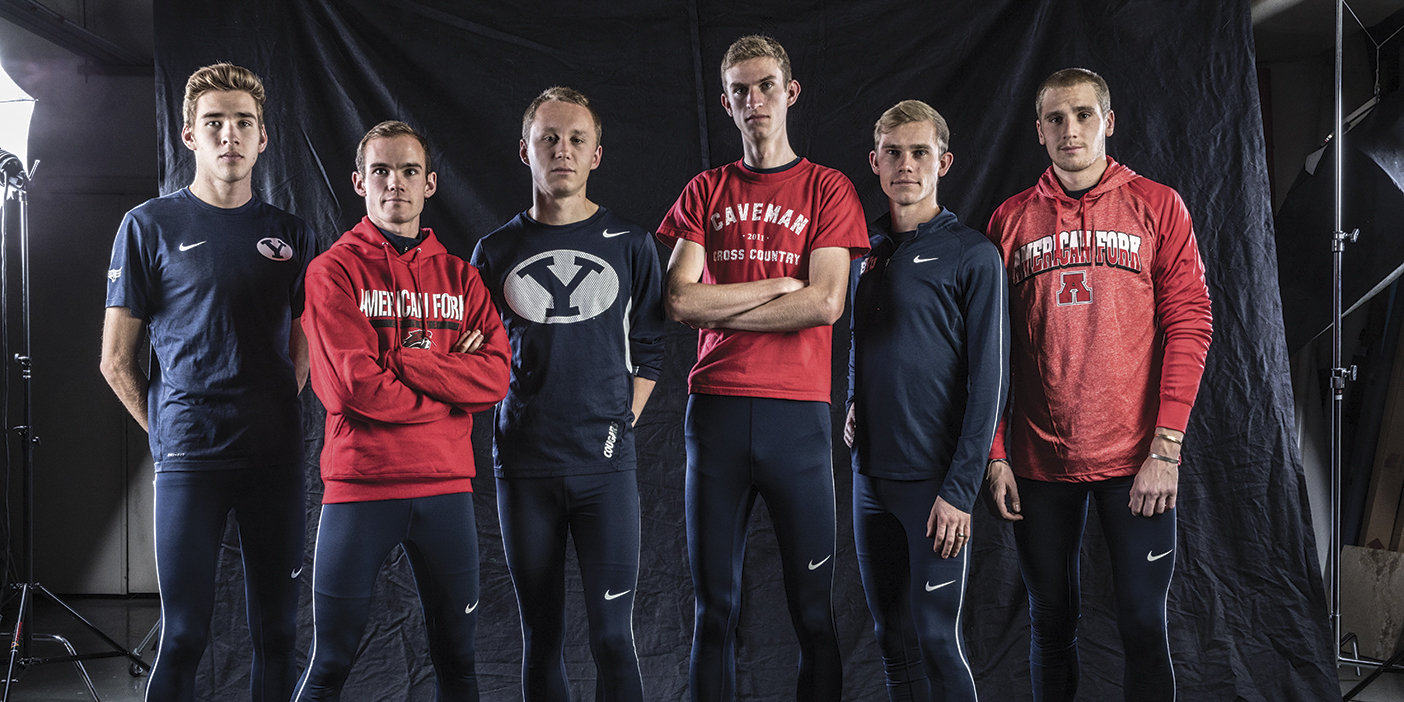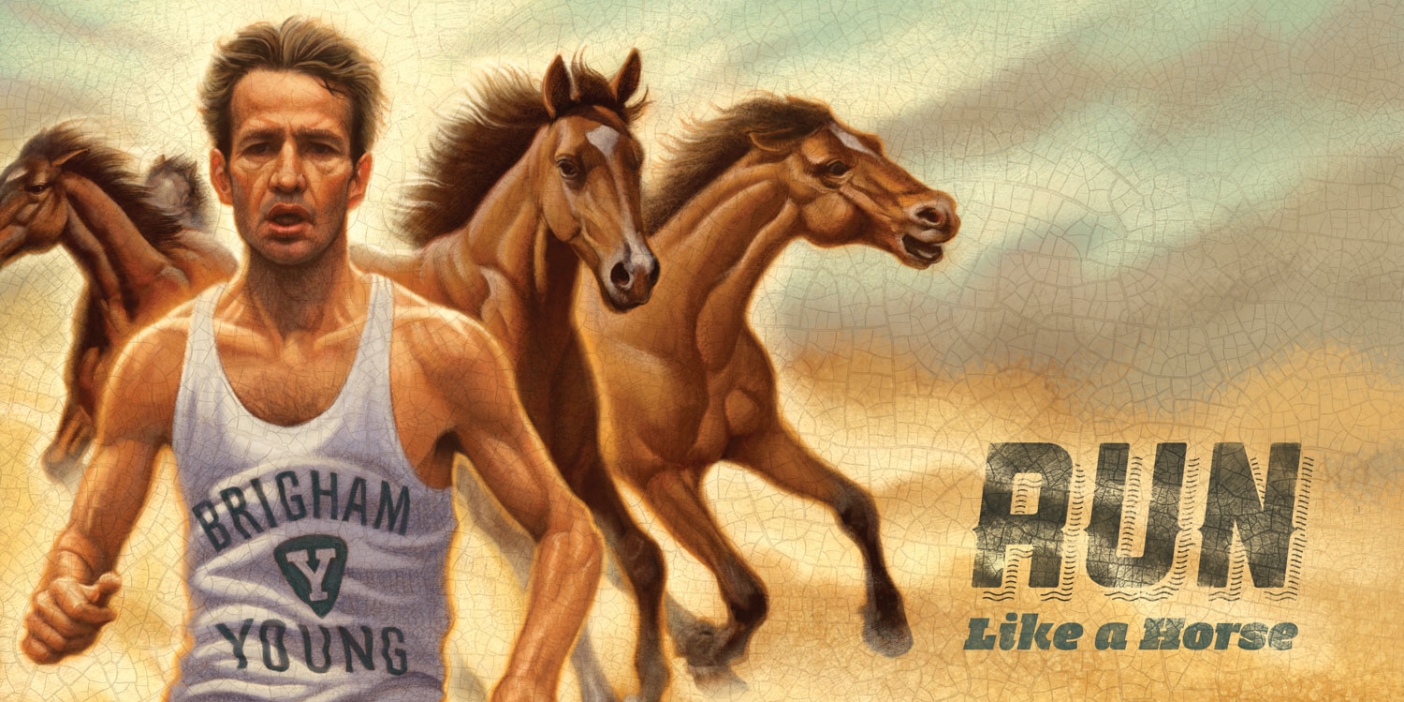How did BYU men’s cross country team win the WCC championship with a perfect score? With some help from Cavemen.

A wave of royal blue. That was all that could be seen as the leading runners rounded the last turn of the West Coast Conference men’s cross-country championship race in October. BYU runners went 1-2-3-4-5, each popping the BYU logo on his jersey as they crossed the finish with a rare perfect score. The team would go on to place third at nationals, BYU’s top finish in 25 years. But that blue wave would likely not have happened without an earlier wave of red recruits to BYU. Three of those top five spots were filled by alumni of the crimson-clad American Fork High School Cavemen cross-country team.
The Caveman-to-Cougar pipeline began in 2012 with Clayton A. Young (’19) and has continued with six other AF grads, including NCAA All-American freshman Casey Clinger (’23), who was named Gatorade National Boys Cross Country Runner of the Year in high school after winning his second individual national championship. With a strong sense of team, the AF runners say they are happy to have kept much of the high-school squad together as they don BYU blue.
AF coach Timo A. Mostert’s (BA ’88) motto is “Success breeds more success,” and his runners have proved him right, claiming the Utah state championship eight out of the last nine years. The team attributes their triumphs to intense summer training, with two-a-day workouts six days a week. Each week the team runs a 10.6-mile course that includes “the Grinder,” a grueling 1.3-mile ascent with a 400-foot elevation gain (see video below). Teams from across the nation come to American Fork to learn from Mostert and experience the Grinder.
“[BYU’s] training philosophy is almost exactly the same as Coach Mostert’s,” explains Clinger, who says that the collegiate-level training at BYU was already the norm for him. Unlike other recruits who were the solo stars in their high schools, the AF runners come from a school where they’ve had “teammates to push them,” explains BYU coach Edward D. Eyestone (BS ’85, MS ’90). They’re not intimidated by other strong runners, he says. “They can take it and continue to do well.”
Eyestone also says his AF runners’ success comes down to more than just conditioning. “The fact that they’ve been in the limelight, many of them for the national high school team of the year, brings a certain amount of confidence, a certain amount of swagger,” he says.
Feeding off of each other, AF alumni Young, Clinger, Connor R. McMillan (’18), and Brayden T. McLelland (’20) consistently ran in the top seven spots on the team this season, and they’re happy to share the spotlight. “It can be tempting to go to another school where you can be the star,” says Young, “or you can come to BYU and be part of a star, in a sense. Any guy on any given day on BYU’s team can be [a] star.”












